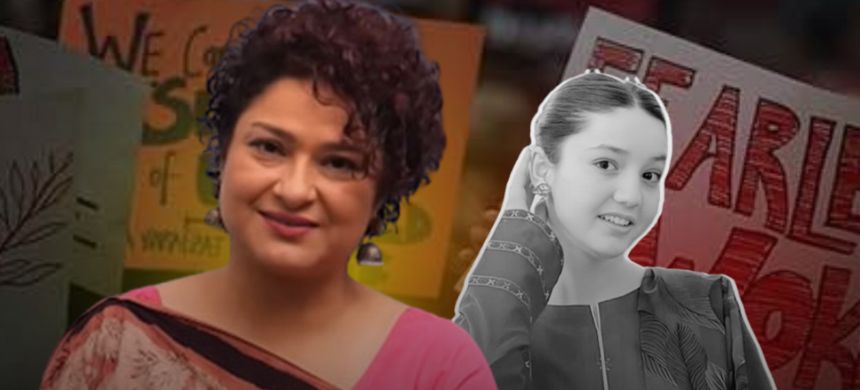Veteran television and theatre actor Sania Saeed recently appeared on The Rafay Mahmood Podcast, where she spoke emotionally about the brutal murder of 17-year-old influencer Sana Yousaf and various other issues.
“Every day, I wake up to news of women being killed,” Saeed shared, visibly moved. “There’s a fatigue even in our compassion. How much more can we endure?”
Read more: Young TikToker Sana Yousuf Fatally Shot in Islamabad; Police Launch Manhunt
She emphasized that even one such tragedy is too many and questioned how society allows any child to face such violence and abuse.
When asked about her comment on societal fatigue being mistaken for resilience, Saeed explained that people rationalize these tragedies to cope and keep moving forward, despite carrying heavy hearts.
Saeed highlighted that Sana was an innocent girl who posted harmless videos and resisted unwanted advances, exactly as society encourages girls to do. This, she noted, is precisely what women’s rights movements and the Aurat March seek to defend against aggressive backlash.
The podcast also discussed the hostile reaction to journalist Fasi Zaka’s prayer for the victim, with Saeed questioning the deep-seated hatred toward women that fuels such extreme responses. She argued this aggression is rooted in how men are raised — emotionally weak and ill-equipped to handle their feelings.
Saeed suggested that this volatility in men makes it difficult for women to rely on them for protection or support, which is often the message they are given.
The conversation touched on the shared struggle of men and women to overcome these challenges. Saeed stressed that addressing these issues requires joint effort; ignoring women’s oppression only worsens societal problems.
They also explored the idea, inspired by psychologist Carl Jung, that unresolved inner conflicts and emotional repression in men can manifest as external violence and control.
Saeed further discussed the hierarchy of abuse — how power and oppression cascade from class to gender and age — and questioned the mentality that drives people to abuse others perceived as weaker.
She reflected on the pleasure some derive from cruelty, linking it to their own experiences of abuse and trauma, and urged society to recognize and address these root causes.
Throughout the podcast, Sania Saeed also spoke about women’s rights, justice, and her own career, sharing insights and lessons learned along the way











